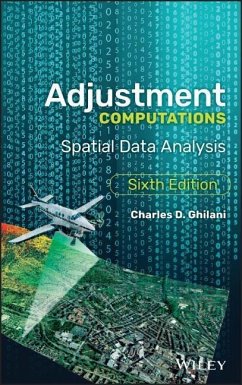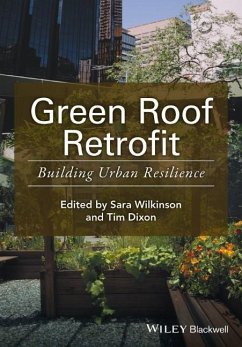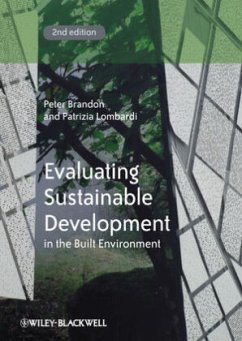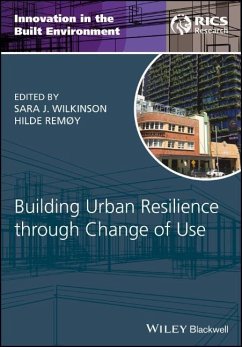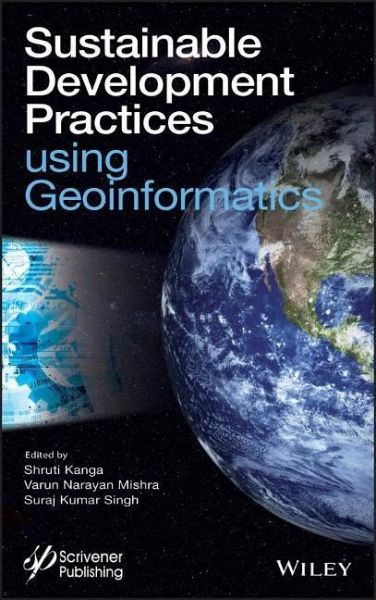
Sustainable Development Practices Using Geoinformatics
Versandkostenfrei!
Versandfertig in über 4 Wochen
210,99 €
inkl. MwSt.
Weitere Ausgaben:

PAYBACK Punkte
105 °P sammeln!
This exciting new volume will provide a comprehensive overview of the applications of geoinformatics technology for engineers, scientists, and students to become more productive, more aware, and more responsive to global climate change issues and how to manage sustainable development of Earth's resources.Over the last few years, the stress on natural resources has increased enormously due to anthropogenic activities especially through urbanization and industrialization processes. Sustainable development while protecting the Earth's environment involves the best possible management of natural r...
This exciting new volume will provide a comprehensive overview of the applications of geoinformatics technology for engineers, scientists, and students to become more productive, more aware, and more responsive to global climate change issues and how to manage sustainable development of Earth's resources.
Over the last few years, the stress on natural resources has increased enormously due to anthropogenic activities especially through urbanization and industrialization processes. Sustainable development while protecting the Earth's environment involves the best possible management of natural resources, subject to the availability of reliable, accurate and timely information on regional and global scales. There is an increasing demand for an interdisciplinary approach and sound knowledge on each specific resource, as well as on the ecological and socio-economic perspectives related to their use.
Geoinformatics, including Remote Sensing (RS), Geographical Information System (GIS), and Global Positioning System (GPS), is a groundbreaking and advanced technology for acquiring information required for natural resource management and addressing the concerns related to sustainable development. It offers a powerful and proficient tool for mapping, monitoring, modeling, and management of natural resources. There is, however, a lack of studies in understanding the core science and research elements of geoinformatics, as well as larger issues of scaling to use geoinformatics in sustainable development and management practices of natural resources. There is also a fundamental gap between the theoretical concepts and the operational use of these advance techniques.
Sustainable Development Practices Using Geoinformatics, written by well-known academicians, experts and researchers provides answers to these problems, offering the engineer, scientist, or student the most thorough, comprehensive, and practical coverage of this subject available today, a must-have for any library.
Over the last few years, the stress on natural resources has increased enormously due to anthropogenic activities especially through urbanization and industrialization processes. Sustainable development while protecting the Earth's environment involves the best possible management of natural resources, subject to the availability of reliable, accurate and timely information on regional and global scales. There is an increasing demand for an interdisciplinary approach and sound knowledge on each specific resource, as well as on the ecological and socio-economic perspectives related to their use.
Geoinformatics, including Remote Sensing (RS), Geographical Information System (GIS), and Global Positioning System (GPS), is a groundbreaking and advanced technology for acquiring information required for natural resource management and addressing the concerns related to sustainable development. It offers a powerful and proficient tool for mapping, monitoring, modeling, and management of natural resources. There is, however, a lack of studies in understanding the core science and research elements of geoinformatics, as well as larger issues of scaling to use geoinformatics in sustainable development and management practices of natural resources. There is also a fundamental gap between the theoretical concepts and the operational use of these advance techniques.
Sustainable Development Practices Using Geoinformatics, written by well-known academicians, experts and researchers provides answers to these problems, offering the engineer, scientist, or student the most thorough, comprehensive, and practical coverage of this subject available today, a must-have for any library.




